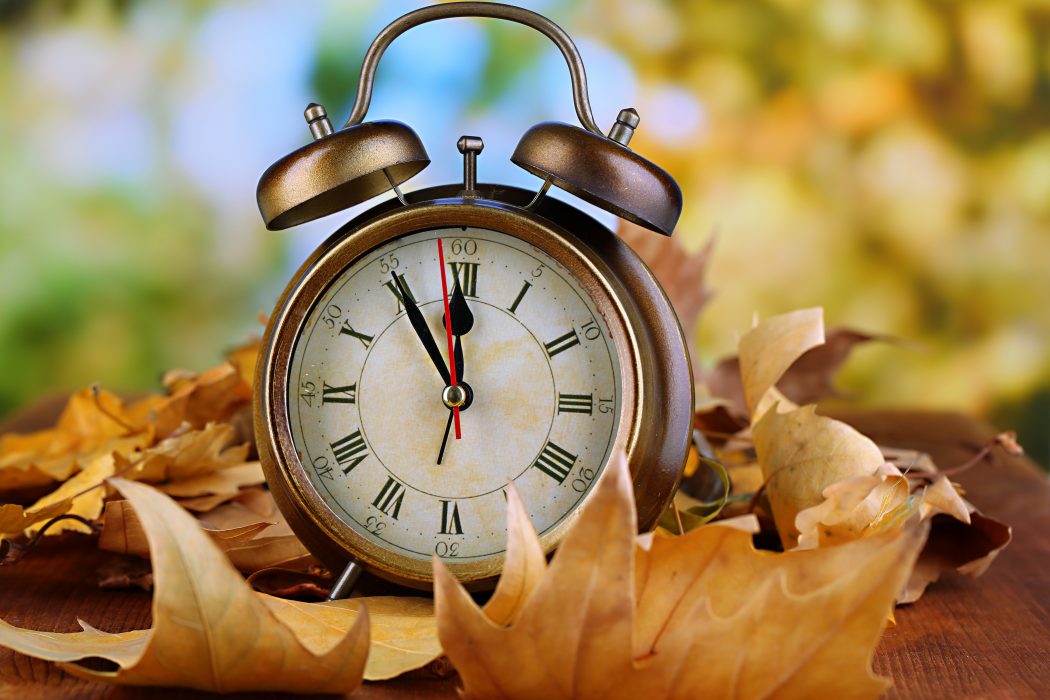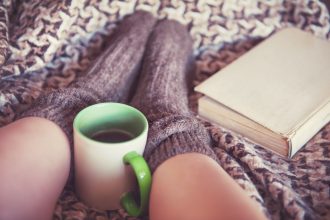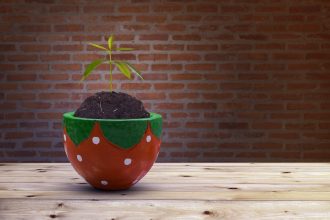Fall back, spring ahead; November 6 is the end of daylight savings, which means we gain an extra hour of sleep. Unfortunately, the end of daylight savings also means it will be dark before dinner, dark when we wake up, and for most of us the sun will only be out while we’re inside at work.
All this extra darkness can wreak havoc on our internal clocks, making it more difficult to get a good night’s sleep. Without proper sleep our brains and bodies can’t function correctly, often making us irritable and lethargic. Use the extra hour of sleep on November 6 to get started on a healthy sleep pattern for winter. Below are some helpful tips to help make sure you are getting the sleep you need—and deserve.
Simulated sunrise

Photo by nattul/Shutterstock
It can be hard to wake up in the morning, which often ends up making it seem like we had a terrible night’s rest. However, for many people, the loud sounds of an alarm clock (or phone alarm) is the problem; alarms cause a jarring wake up, throwing away the relaxation and peace you achieved during REM.
In the summer, all you need to do is leave the curtains open and let the sun wake you up. Unfortunately, in the winter months, the sun sleeps late, which means you need to set an alarm. Luckily, there is an awesome invention: the Wake-up Light. It simulates a colourful sunrise to let you wake up slowly and naturally.
Exercise

Photo by Maridav/Shutterstock
It doesn’t even matter what kind of exercise you’re getting, as long as you’re getting it. The arrival of colder temperatures means you’re less likely to go for an evening stroll, walk home from work, or even leave the warmth of your house at all, making winter exercise crucial. Now that the weather is restricting your movements, you might find you’re more restless at bedtime, which means more exercise is necessary.
Join a local gym of fitness class and try to visit at least three times a week, making sure your workout finishes at least three hours before bed. You’ll soon notice the difference in your sleep, especially on the days you exercise. If you can’t make it to the gym, try doing some yoga an hour before bed to help move your body, stretch your limbs, and release some stress.
Meditation

Photo by A StockStudio/Shutterstock
Meditation often has a reputation for being silly or pointless; however, if you can figure out how to do it right, meditation will be your best sleep aid. If you can figure out how to quiet your mind, you’ll find it is way easier to fall asleep and stay asleep. Start by sitting somewhere quiet and dark, making sure you’re comfortable. You can sit on a pillow and lean against the wall, or lay flat on a yoga mat with a light blanket to keep you warm. Then try some breathing exercises—concentrating on your breath will distract you from your busy mind and help you relax.
After a while, your mind will quiet and it will become easier to focus on your breathing. When you get the hang of things, the concentration will lead you to a place where your mind is resting and your body is breathing naturally, letting you fall asleep free from worry.
Cautious consumption

Photo by SukanPhoto/Shutterstock
What you eat and drink during the day can affect how you sleep at night. Be sure to steer clear of anything with caffeine after dinner, including chocolate and pop. Coffee consumption shouldn’t take place after about 2 pm, or it will make falling asleep more difficult. Alcohol should also be avoided if you’re having trouble sleeping. A glass of wine with dinner might help you feel relaxed, but anything beyond that will disturb your ability to sleep soundly.
Even drinking too much water right before bed can affect your sleep; avoid drinking water for the last hour or two before sleep so you aren’t waking up to use the bathroom during the night. The same goes for eating and snacking; make sure you don’t eat anything right before bed, and if you must to eat, stick with foods that help raise your melatonin levels.
No screens

Photo by aslysun/Shutterstock
This one is the hardest. Make sure there are absolutely no screens in the bedroom before bed. That means you can’t watch TV in bed, you can’t send work emails, and you can’t post on social media. The only screen that should be allowed is an e-reader that isn’t backlit.
Even the small blue light given off by digital clocks, phone chargers, and computer power buttons can distract your mind and prevent you from having a good night’s sleep. Cover any unnatural light sources to make sure your bedroom is completely free of technology. To really optimize your sleep, turn off all devices at least one hour before bedtime.
Create a pattern

Photo by Ivonne Wierink/Shutterstock
If your sleep habits are erratic and you find yourself going to bed and waking up at a different time each day, your sleep will suffer. Try your best to stick to a sleep schedule. Social jetlag is something that often happens after the weekend. You are going to sleep early and waking up for work from Monday to Friday, but then suddenly, Friday and Saturday night you are up late and sleeping well past your usual breakfast hour. This inconsistent sleep behavior will negatively affect your sleep for the next week at least.
If you are going to bed at approximately the same time each night, your body will automatically start to get sleepy and shut down when it’s time for bed. If you are waking up at the same time each day, your internal clock will start preparing your mind for wakefulness even before your alarm (or simulated sunrise) goes off. Having a sleep plan also means there’s no time for naps, which can throw off the whole thing. It can be hard to set up this kind of schedule; however, if you are a bad sleeper, you will find this method extremely helpful and necessary.
See your doctor

Photo by lenetstan/Shutterstock
If your sleep problems keep recurring, it’s probably time to see your doctor. If you have been taking sleeping pills, or thinking about taking them, the doctor will make sure they are safe and helpful. Some sleeping pills end up making it harder for natural sleep to occur, creating a dependency, which is not healthy. The doctor will perform a check-up to make sure there aren’t any diseases or health issues causing your lack of sleep. Depression, arthritis, and even acid reflux can disturb your rest, so make sure your doctor is aware of everything.
Get comfortable

Photo by WorldWide/Shutterstock
It is surprising how much a comfortable mattress, duvet, and pillows can make a difference to your ability to sleep well. If your mattress is old or uncomfortable, it could be time to purchase a new one. Many mattress companies have a return policy, which allows you to test your mattress for a week or two to make sure it’s the right one for your sleep. Also, your neck should be neutral, so make sure your pillow is the right size for your body, and if you have any back pain, use an extra pillow between your legs to relieve the tension.
To get comfortable, and stay comfortable, all distractions need to be removed as well. Remove any noise, including dripping faucets and traffic using a white noise machine or ear plugs. Dim the lights for the last hour before bed, which will help your eyes relax. Set the bedroom temperature to around 70 degrees, which is thought to be the most comfortable temperature for sleeping. And finally, use the bed only for sleeping and intimacy, avoiding work, TV, and texting. Chances are, if your room is optimized for comfort and relaxation, you’ll have a much better night of sleep.
Also on RNR:

























